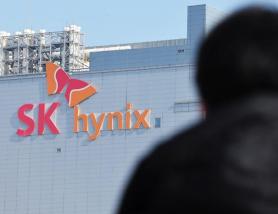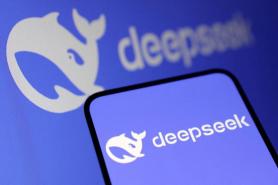
SEOUL, October 24 (AJP) - The race to dominate artificial intelligence is accelerating — and China is catching up fast.
Once seen as lagging far behind Silicon Valley, China’s AI industry has surged forward, led by DeepSeek, a startup founded in 2023 that has quickly emerged as a formidable rival to OpenAI. Within two years, the company introduced its R1 model, which it claims outperforms OpenAI’s o1 system — and did so at a fraction of the cost, roughly $5.6 million compared with the American firm’s multimillion-dollar budgets.
DeepSeek’s rapid ascent, showcased in January 2025 when it directly challenged OpenAI’s dominance, underscores Beijing’s growing technological prowess. China now ranks second only to the United States in AI capabilities, buoyed by innovation born of constraint.
U.S. export controls on advanced AI semiconductors have hampered China’s access to high-end chips, but Chinese researchers have found workarounds. DeepSeek’s engineers, many of whom were trained entirely within China, have refined algorithms to compensate for hardware limitations — a testament to the country’s ability to stretch software performance to its limits.
Domestic chipmakers like Huawei have also made strides, producing processors that perform at 70 to 80 percent of the level of Nvidia’s H100. By creatively linking multiple domestic chips in parallel, they have managed to maintain competitiveness despite U.S. sanctions.
Beijing’s commitment to AI as a national priority has further accelerated progress. The government offers generous subsidies, tax breaks, and preferential treatment for domestic firms, part of a broader push to establish technological self-sufficiency.
At the same time, China’s massive population — 1.4 billion people generating vast amounts of digital data — provides a unique advantage. Unlike Western countries with strict data privacy laws, China’s relatively permissive environment allows for large-scale data collection and analysis, fueling AI training at an unparalleled scale.
Major technology companies such as Baidu, Alibaba, and Tencent, along with a swarm of smaller startups, are investing heavily in AI infrastructure. The country’s focus on STEM education has also created a deep pool of engineers and scientists, supplying the workforce needed to sustain its ambitions.
Gross Data Production
In the emerging AI-driven economy, some analysts argue that the real measure of power is no longer gross domestic product but “gross data production.” By that measure, China leads the world. The data generated by its vast consumer base and industrial systems has become an irreplaceable strategic asset — the raw material of the AI era.
China’s “AI+ manufacturing” strategy aims to fuse artificial intelligence with factory automation to offset U.S. tariffs and reduce labor costs. So-called “dark factories” — fully automated, human-free production facilities — are already operating in some sectors. Xiaomi’s electric vehicle plant, which produces a car every 76 seconds, is often cited as a glimpse of that future.
For South Korea, China’s rapid AI-driven manufacturing expansion poses a growing challenge. Korean industries, competing directly with Chinese manufacturers, must find ways to combine their own production data with advanced AI systems — including collaboration with U.S. partners — to stay competitive.
The country holds a rare advantage in the global AI race: it produces both high-bandwidth memory (HBM) semiconductors and advanced GPUs, essential components for training large AI models. Analysts argue that Seoul should treat HBM as a strategic resource, using it to secure partnerships with global chipmakers such as Nvidia and strengthen its technological footing.
As the AI power struggle deepens between Washington and Beijing, South Korea stands at a critical intersection. By leveraging its semiconductor strength and deep industrial base, it may yet turn the rivalry between the world’s two largest economies into an opportunity.
About the author
-Master’s Degree, Tsinghua University
-Ph.D., Fudan University
-Senior Researcher, Daewoo Economic Research Institute
-Semiconductor and IT Analyst
-Adjunct Professor, China Graduate School, Sungkyunkwan University
-Director, China Economic and Financial Research Institute
* This article, published by Aju Business Daily, was translated by AI and edited by AJP.
Copyright ⓒ Aju Press All rights reserved.




